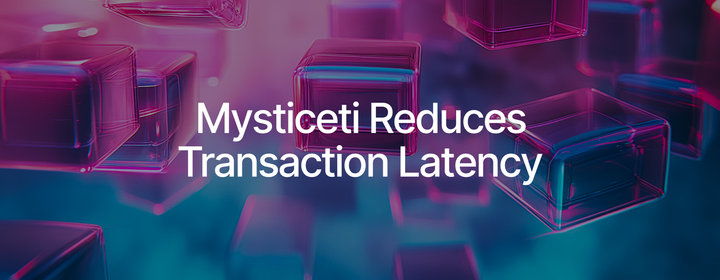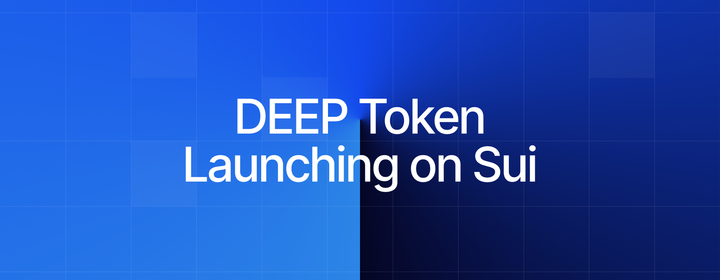Sui funds University Researchers from KAIST, UCL, National University of Singapore
Sui Academic Research Awards provides funding to 17 researchers pushing the boundaries of blockchain-related technologies.

The Sui Foundation is excited to unveil the awardees of the Sui Academic Research Awards. The program funds research that advances Web3 across many verticals, particularly by pushing the limits of technology related to blockchain networks, smart contract programming, and products built upon Sui.
In the last two cohorts, we approved 17 proposals for $425,000 from leading universities including KAIST, University College London, EPFL, and National University of Singapore.
Overview of approved proposalsDAOs: Voting-Bloc Entropy
Ari Juels (Cornell University)
Addressing the fundamental question of what it means for an organization to be decentralized, this research will establish a metric to gauge organizational decentralization. By establishing a measure of decentralization exhibited by a decentralized autonomous organization (DAO), the research will identify practices that can enhance decentralization within organizations.
Adaptively-secure asynchronous DAG-based consensus
Philipp Jovanovic (University College London)
This project aims to develop an asynchronous DAG-based protocol to enhance robustness against attacks and adapt to changing adversaries. Unlike current partially synchronous models vulnerable to denial-of-service attacks and static adversaries, the proposed protocol will offer improved security and adaptability while maintaining performance levels as close as possible to its partially synchronous counterparts.
Large language model guided auditing of Sui smart contracts
Arthur Gervais (University College London)
Great improvements to Move smart contract auditing can be achieved using large language models (LLMs) like GPT-4-32k and Claude-v2-100k. Initial analysis of 52 Solidity DeFi smart contracts identified various vulnerabilities that resulted in nearly $1 billion in reported losses. This project expands this research into Sui smart contracts, emphasizing prompt engineering for robust security assessment and evaluating LLM performance using synthetic benchmark datasets.
Mapping the landscape of consensus protocols
Christopher Cachin (University of Bern)
By surveying the current landscape of consensus, this project will offer novel insights into cryptographic consensus protocols. Results will lead to better understanding of existing algorithms and to new structures for designing distributed protocols.
A framework for high-assurance verification of decentralized oracle protocols
Giselle Reis (Carnegie Melon University) and Bruno Woltzenlogel Paleo (Djed Alliance)
Creating a framework for rigorously analyzing and verifying blockchain oracles using formal methods is essential for ensuring accurate and fair external data in smart contracts. This project builds upon prior work by extending a basic oracle protocol and business model formalized in the Coq proof management system, aiming to develop a comprehensive library of definitions and proof tactics.
Identifying scalability bottlenecks
Roger Wattenhofer (ETH Zürich)
By identifying bottlenecks stemming from smart contract design flaws, this project seeks to enhance the parallelization potential of blockchain applications. It will also explore how adjusting transaction fees can impact parallelization potential.
Mechanizing Bullshark protocol
Ilya Sergey (National University of Singapore)
This research aims to formally verify Bullshark's properties using modern computer-aided verification tools, advancing the understanding of DAG-based consensus protocols. Additionally, the project will contribute to the advancement of distributed systems research by providing the first mechanically verified models of DAG-based consensus protocols.
BBSF: The Blockchain Benchmarking Standardized Framework
Henry F. Korth (Lehigh University)
This project aims to create a blockchain benchmark standardized format for fair comparison of layer 1 blockchains, as well as layer 2 scaling solutions. Ultimately, the objective is to offer users and developers transparent insights into chain performance, facilitating informed decision-making.
Building a Scalable and Decentralized Shared Sequencing Layer
Min Suk Kang (KAIST)
The proposal will explore the use of Bullshark/Mysticeti as a shared sequencer algorithm. This will involve running multiple rollups that use Sui as the sequencing layer, allowing them to interpret transactions as per their execution layer.
Local fee markets for optimal congestion pricing
Abdoulaye Ndiaye (New York University)
This research investigates local fee markets to optimize congestion pricing, drawing parallels between congestion in transportation and transaction execution in blockchain networks. The goal is to establish efficient pricing mechanisms reflecting congestion states for optimal resource allocation. Initial analyses of user valuations and delay costs show promising directions for congestion pricing in blockchains.
SAMM: Sharded Automated Market Makers
Ittay Eyal (Technion - Israel Institute of Technology)
A new concept called sharded contracts which utilizes multiple contracts to increase concurrency is being developed. While sharding automated market maker (AMM) smart contracts can improve performance, challenges arise due to liquidity fragmentation and costlier exchange transactions. The key objective is to align incentives for liquidity providers and traders to sustain multiple AMM shards, enabling fully parallelizable sharded AMMs.
Private disclosures in competing mechanisms
Andrea Attar (University of Roma Tor Vergata - Italy)
Exploring a new approach to mechanism design in markets, this research focuses on competition among sellers to attract informed buyers. It investigates the impact of private disclosures from designers to agents on market outcomes and strategic interactions, aiming to provide insights into modern market dynamics and competition. Through theoretical analysis and empirical research, the project seeks to advance understanding of market imperfections and inform policy recommendations.
Apply large language models to generate Sui smart contracts
Ken Koedinger and Eason Chen (Carnegie Melon University)
Smart contracts on Sui are written in the Move language, posing challenges for current large language models (LLMs) due to limited training data. This research aims to address this by fine-tuning LLMs with Move code and Sui-specific prompts. This research will gather a comprehensive dataset of Move language examples, enhance prompt engineering, and implement fine-tuning, comparing LLM effectiveness across these methods.
COMET: Comparative Metrics and Framework for Transitioning to Move
George Giaglis (University of Nicosia)
Despite extensive analysis of Solidity, the emergence of Move presents a notable shift, yet a comparative analysis between Solidity and Move remains scarce. This research will complete a comprehensive comparative analysis between Solidity and Move, facilitating a deeper understanding of Move’s features and capabilities. By organizing key elements into a framework, our objective is to empower developers to transition to developing with Move easily.
Revolutionizing DeFi: A deep learning approach to optimize liquidity and dynamic fees on Sui
Rachid Guerraoui and Walid Sofiane (École Polytechnique Fédérale de Lausanne)
This research will develop a hybrid deep learning model for optimal range predictions in Sui DeFi protocols. It combines enhanced recurrent neural networks and deep reinforcement learning, while integrating social media sentiment analysis to enhance predictive accuracy. This research seeks to improve DeFi protocols' responsiveness to market changes, positioning Sui as a leader in next-gen DeFi protocols.
Evaluate the predictive ability of SUI’s volatility
Stavros Degiannakis (Open University of Cyprus)
Evaluating model fitting and predictive ability in econometrics is critical, often relying on loss functions to assess forecasting utility. This research will investigate the SPEC algorithm's effectiveness in predicting volatility for assets on Sui. Utilizing freely available high-frequency price data, the study will focus primarily on SUI, with validation across various blockchain assets.
Low-memory post-quantum transparent zkSNARKs
Brett Falk and Pratyush Mishra (University of Pennsylvania)
The research aims to develop scalable zkSNARKs by addressing three main barriers: prover time complexity, prover space complexity, and prover SRS size. The goal is to construct zkSNARKs that overcome these barriers simultaneously, leading to deployment-ready, scalable cryptographic proofs for various applications in blockchain technology.
We would like to thank all those who submitted proposals for the Sui Academic Research Awards program.
For those who are interested in the program, please submit your proposals for the next round by April 4, 2024.



